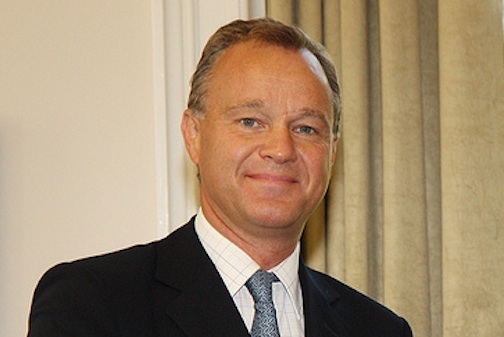Above: Minister Mark Simmonds
By the Caribbean Journal staff
Following widespread opposition in the Turks and Caicos, the United Kingdom has agreed not to implement a value-added tax in the territory.
The decision, announced in a letter by Mark Simmonds, the UK’s Minister for the Overseas Territories, represents a victory for TCI Premier Dr Rufus Ewing, who had campaigned heavily against the tax since taking office in November.
Ewing had made the debate over the VAT a centrepiece of a letter to Simmonds earlier this month in which he asked for the UK to recall the TCI’s Governor, Attorney General and Chief Financial Officer.
The VAT would have gone into effect on April 1, but Simmonds said he would instruct the Governor not to sign the Commencement Notice which would make it official.
“As the signing of this notice is what would have been required to introduce VAT, there is no need for further legislative action,” Simmonds wrote.
The Minister said it remained the view of the Foreign and Commonwealth Office that VAT “would provide a fairer, broader and more stable revenue stream, and that without this the burden of taxation will fall on a smaller number of businesses and households.”
Simmonds said he hoped that the TCI and UK Ministers could “maintain a dialogue about the future development of the territory including, as necessary, a frank debate on any issues where we disagree.”
“I am sure that you share my disappointment at the vitriolic public attacks in the past weeks on the judiciary and public servants on TCI,” Simmonds wrote. “We look to you, your colleagues and all Members of the House of Assembly to condemn this and to work actively for political debate that does not take such an unacceptable form.”
It’s not clear if Simmonds was referring specifically to Ewing’s somewhat fiery rhetoric in his letter to Simmonds, when he called into question the corruption charges against the TCI’s prior administration and accused the Governor of “atrocities and wrongful acts.”
Of course, Simmonds letter was also notable in that it did not respond to Ewing’s request for the Governor’s removal.
Now, the burden of completing the Turks and Caicos’ return to solvency now stands squarely on the shoulders of Ewing and the elected government, Simmonds wrote.
“You have stated clearly TCIG’s opposition to the implementation of VAT and your support for the current tax regime,” Simmonds wrote. “You will recognize that, in taking this position, TCIG are also taking on a responsibility for ensuring the fiscal health of the territory, including being able to refinance its debts without a UK government loan guarantee in 2016.”
Simmonds said he would instruct his team to “monitor the financial situation very closely,” reminding Ewing that “it is [the TCI government] which will be held accountable for sound finances.”
“I cannot and will not allow a reversal of the progress that has been made by the Interim Government, which is a vital component for the reputation of TCI and its people,” he wrote.
